My father decided to move back to Syria in 2016. Just like many retired migrants, he wanted to go back home and be around his family and old friends. I thought the decision was crazy and that my dad would come back straight away, but he is still there.
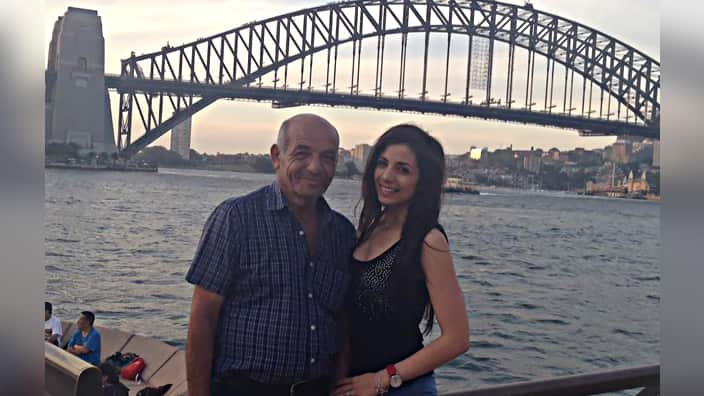
When I left Syria in 2005, my homeland was considered one of the safest countries in the world. The plan was for us to come to Australia for a holiday, visit my father and sisters in this strange city called Sydney and go home. But we stayed.
12 years later, my sister has decided to get married in Syria. Just like many Australian Syrians, as well as Syrians living all around the world, she wanted to celebrate her wedding with family and old friends in her homeland.
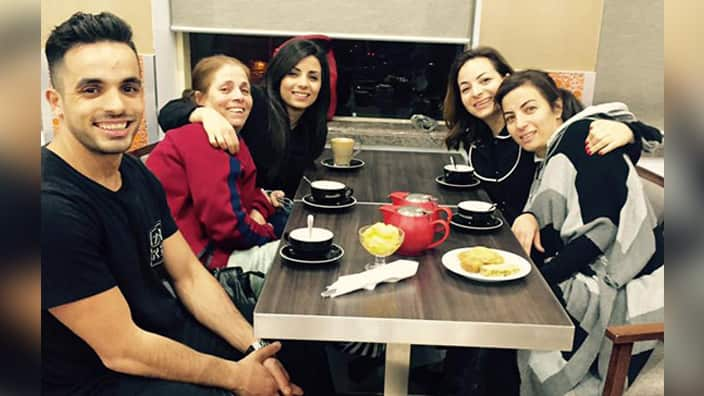
On my first visit to Syria since first moving to Australia, I expected to return to find a war-torn country. I thought it would be a country I would not recognise, or even be able to connect with, given that it has gone through what has been described as "the worst civil war in modern times."
I was concerned about the journey into Syria - especially since many areas are considered no-go zones by the Australian Government.
I had to fly to Beirut and cross the Syrian border while the Syrian and the Lebanese armies were fighting one of the biggest battles against IS on the border at the time.
Arriving at my old home town of Sweida was emotional.
The southern city, which was surrounded by IS forces till July this year, is also the city that has been traditionally known as the safe haven for religious minorities since Ottoman ruling.
First impressions
Seeing long lines of cars queuing at petrol stations was a foreign scene to me. Syria never had a problem supplying its citizens with sufficient basic needs such as fuel or gas, let alone free higher education and comprehensive medical care.
Times have changed, that is for sure.
The house I was raised in was still standing in my old street - only this time it was surrounded by towers I didn’t recognise.
My father tells me it’s the result of investors and businessmen from all around Syria coming to prosperous Sweida, where they wait out the war, to return home when it ends.
It took me a good few hours to comprehend that I was actually back in Syria and that I have made it home with no trouble at all.
The peaceful surroundings and the mountain breeze stopped me for a second and made me think why life - life like this - never gets reported on. Is death and war the only thing that is newsworthy?
So I decided to keep an audio diary, something for me to keep as a memento of my trip to Syria forever.
I was eager to go out to the streets and visit old places I was so familiar with. Growing up in Sweida meant everyone knew everyone else and greeted each other.
The first place I thought to visit was the markets where I shopped for fruit and vegetables as a kid with mum. The market was still there only bigger and busier.
There were many unfamiliar faces at the market - religious dressing has become more common.
300,000 refugees from all around Syria have come to Sweida, the majority Sunni Muslims who fled IS. Half of those refugees have stayed.
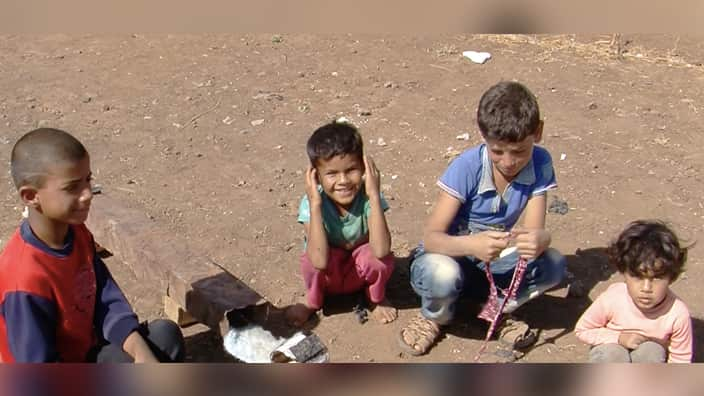
The markets were very busy on a Tuesday morning on this very hot summer day but the weather didn’t stop people from going on with their daily lives.
"If the war hasn’t stopped life why would the weather?" I asked myself.
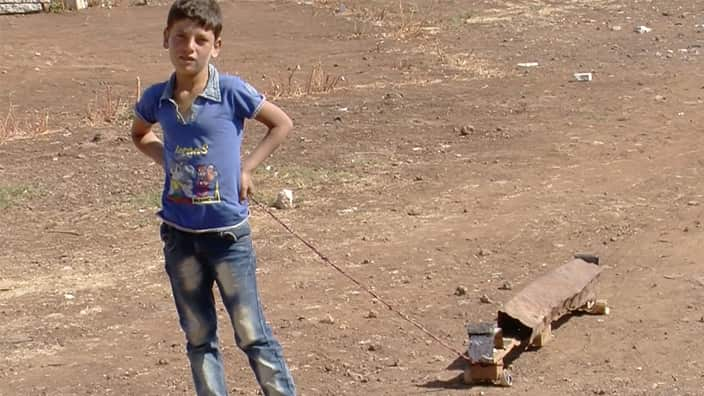
A thriving oasis
The city was alive 24/7 and the nightlife has boomed.
Hundreds of new cafes and restaurants, as well as plenty of nightclubs have been opened in the last seven years.
People were out drinking and smoking late at night and the kids - who one worries about the most during war times - were out at the theme parks enjoying the school break as if they lived in a country different to the one we see and report on in the news.
What caught my attention is what Om Mahmoud told me at the farm she works at along with 20 other refugee families.
The farm is owned by my uncle, an Australian Syrian who also returned to Syria amid the war and refuses to leave Syria while he can help.
Om Mahmoud told me that she and her family are willing to keep moving around the country if they need to, but they will never leave Syria.
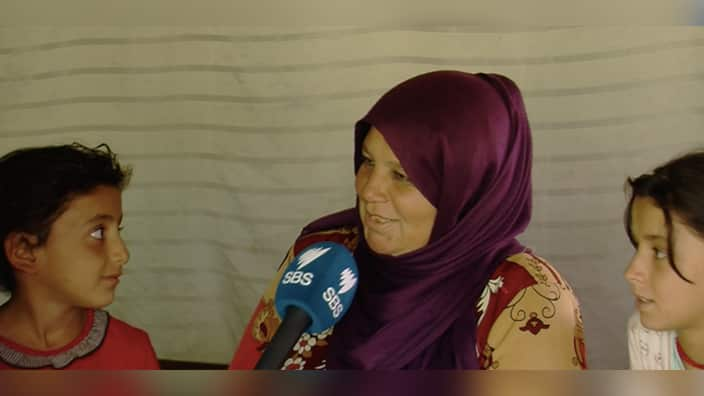
Mahmoud who originally came from Idlib in the far north of the country, to Sweida in the far south, is expecting her 11th child. She said "in Sweida, my family hasn’t experienced any kind of discrimination."
"I am happy, my kids are going to school and work is always available in the city."
If my father hadn’t migrated to Australia in the early 1980s, those refugee kids could have been me - or my kids.
If we hadn’t built a life in Sydney and war had overtaken our city back in Syria, what would we have done?
Would we have stayed like Om Mahmoud and her family? Or would we have fled like millions of Syrians who took the risk and tried to reach Europe via the sea?
The Wedding
My sister’s wedding was the most beautiful celebration of life in the middle of a war zone.
The wedding was another reminder that Syrians I met on this trip love life not death.
They celebrate the future and don’t want to ever give up.
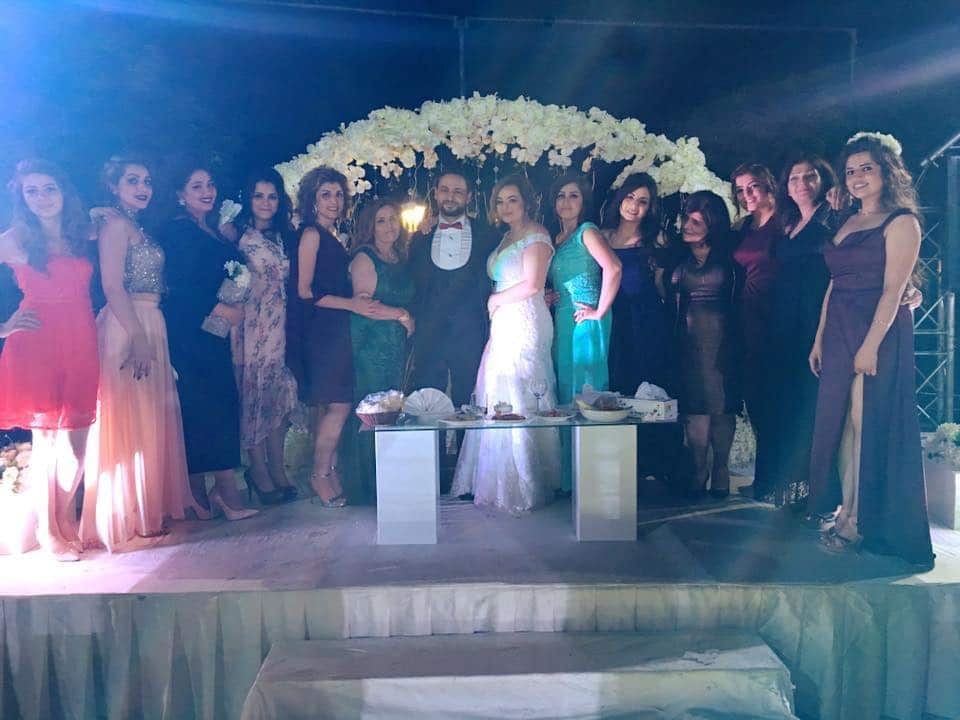
Leaving Syria after two weeks was a lot harder than I expected. The country has a special feeling to it that only people who actually go there to visit can relate to.
The smiling faces of the people I saw on this trip reflected their strong will and determination to overcome tragedies and hardships.
Their generous attitude towards life and optimism hasn’t wavered: instead it has actually gotten stronger.
This trip to my homeland made me believe again that a brighter future is awaiting the people of Sweida and that the sun will keep shining in the land of the sun - Syria.
In August 2017, I left Syria again for Sydney - but this time it was to come home.
Video postproduction: Tyrone Pynor and May Rizk
